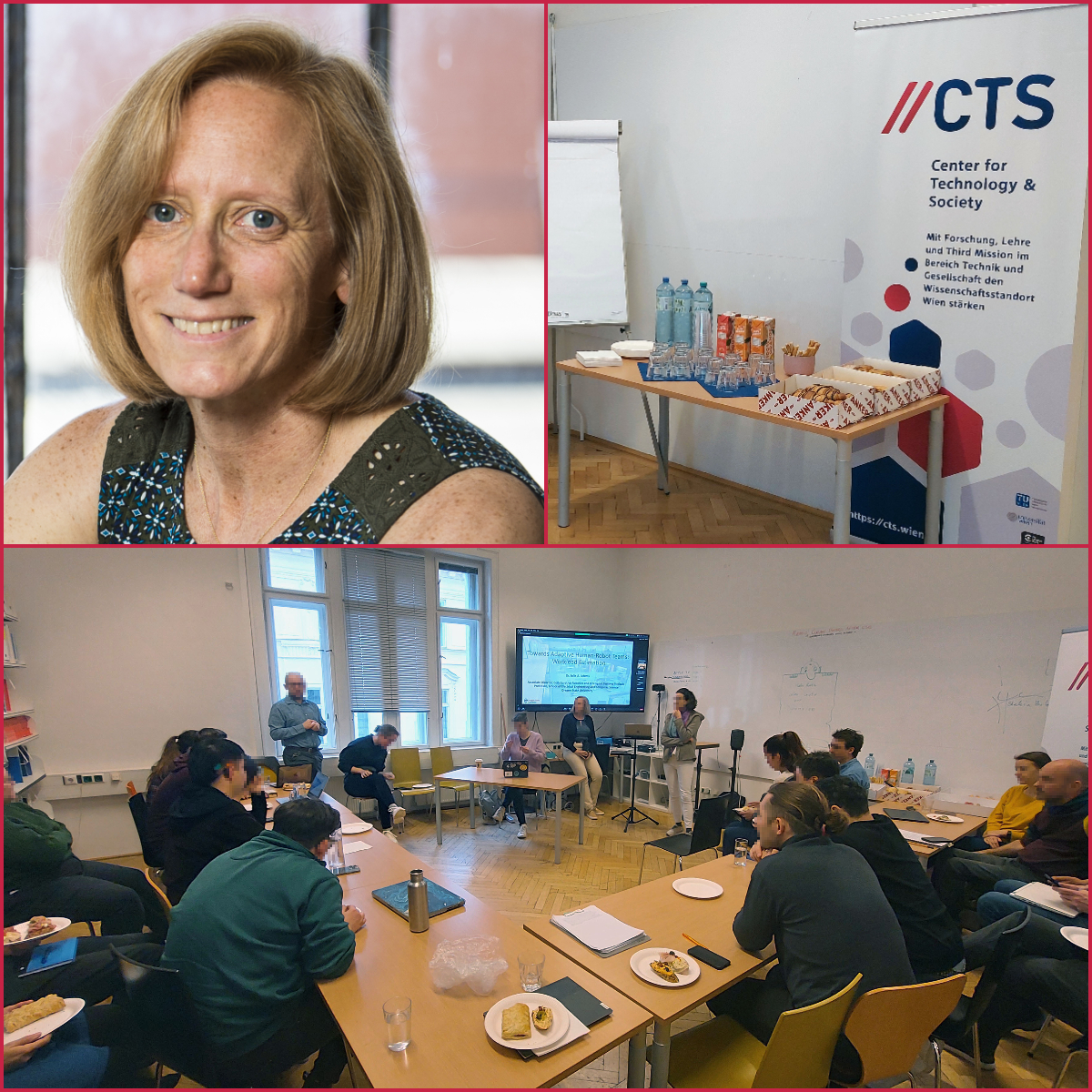This year, the CTS is focusing, amongst other topics, on robotics. The continued advancement of robotics technology holds the potential to revolutionize industries, enhance productivity, and transform the way humans interact with machines, leading to unprecedented levels of automation and innovation. Likewise, the consequences of this development could impact society and include a redefinition of work structures, adjustments to educational systems, and a broad debate on the ethical and social impacts of automation and artificial intelligence. For this reason, we are featuring a series of insights and research activities from all our CTS houses.
This time, we took a look at the Human Computer Interaction (HCI) group at TU Wien and Assistant Professor Astrid Weiss. We attended an insightful lunchtime talk at their premises on 16 April 2024 as part of the Lunchtime Series (see Lunchtime Series). We as CTS were proud to support the event and participate live.
The keynote “Towards Adaptive Human-Robot Teams: Workload Estimation” was given by Dr. Julie A. Adams, founder of the Human-Machine Teaming Laboratory and Associate Director of Research at the Collaborative Robotics and Intelligent Systems (CoRIS) Institute. Dr. Adams boasts an impressive career spanning nearly thirty-five years. Throughout her journey, she has delved into the intricacies of human-machine collaboration and distributed artificial intelligence.
Dr. Adams’ research focuses on robotics applications across diverse fields such as first response, archaeology, oceanography, and the U.S. military. With expertise in unmanned systems, gained from her work with crewed civilian and military aircraft at Honeywell, Inc., and industrial systems at the Eastman Kodak Company, Dr. Adams explores how robotics enhances efficiency, precision, safety, and innovation in these domains. Moreover, her research highlights the pivotal role of robots in human-robot teams, augmenting human capabilities. Specifically, Dr. Adams’ pioneering work demonstrates how robots in these teams can adapt to human under- or overload, paving the way for future research where a single human could effectively control multiple (semi)automated adaptable robots.
Her expertise lies in distributed artificial intelligence, swarm robotics, and human-machine teaming. Dr. Adams is an NSF CAREER award recipient, an Army Mad Scientist, and a Fellow of the Human Factors and Ergonomics Society. She was recently appointed to the DARPA Information Science and Technology Study Group.
We are proud to have been part of this inspiring lunchtime talk and look forward to more exciting events hosted by the HCI Group at TU Wien!
